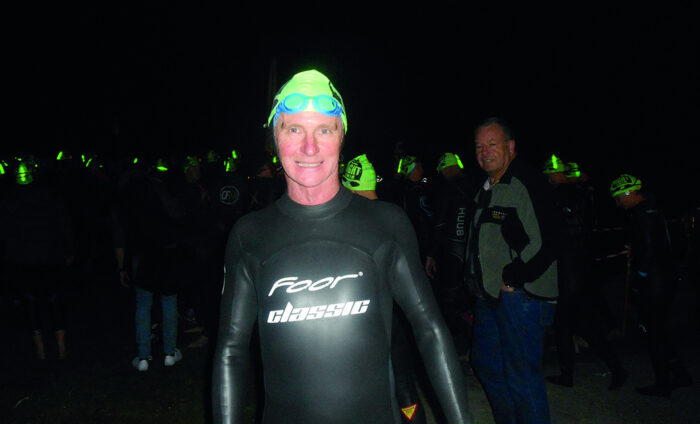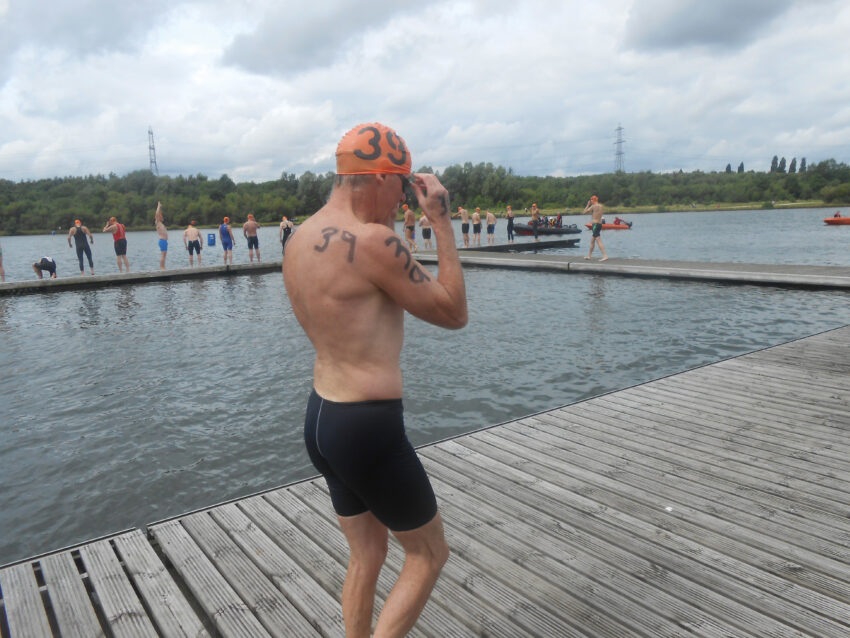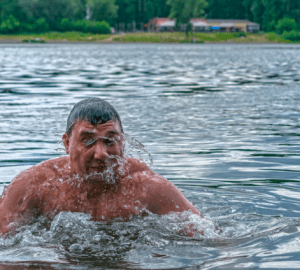
Cross-country runner to open water swimmer
After injury forced my reluctant retirement from athletics after 40 years – the last 17 of them as an international masters cross country runner, I needed a new sporting challenge. With two international cross country titles to my name I was also keen to keep my competitive edge. Earlier this year, H2Open kindly offered advice when I enquired about swimming clubs and competition. Following their suggestions, I enthusiastically took up open water swimming.

Brian at the Scottish Masters Open Water Swimming Championships
How’s this for a fairy tale? Two and a half years, several injuries, three operations and one retirement from athletics after last winning a medal in a Scottish masters running championship (M55 cross country silver), I win M55 silver in the Scottish Masters Open Water Swimming Championships.
Unfortunately, that’s all it is: a fairy tale. What actually happened was that I failed to finish the swim, had to call in the rescue boat and spent half an hour in the ambulance with near-hypothermia.
However, although my experiment in championship swimming (non-wetsuit) didn’t work, I have had some success in a wetsuit and more importantly have loved my first season of open water swimming. I improved my 1500m time from 25:23 to 23:17 and my 750m from 12:43 to 11:13 and I was first in my age group most times (I’m 59), although completely outclassed in ASA championships. Here are 10 reflections on the similarities and differences between cross country running and open water swimming:
●
Open water swimming is to pool swimming what cross country running is to track.
●
For a skinny, ex-Scottish Veteran Harrier, swimming without a wetsuit is like running a cross country race naked and barefoot.
●
I felt great running out of the water in a triathlon relay (my son cycled and my daughter ran) but half way up the 400m hill towards the transition area I remembered why I had given up running to take up swimming.
●
Even after 40 years of running, a year of swimming can change your body shape.
●
Night swimming is like nothing else on land or in water – amazing!
●
You can make huge improvements in competition swims with small changes to technique in training – my best swims were in July, August and early September; I like to think that this was down to good preparation as well as warmer water!
●
Swimming with the tide or current is like running downhill, wind-assisted.
●
Results aren’t everything: some are unofficial and some don’t really matter. The Aspire Night Swim was my slowest of the year but the most enjoyable.
●
Although I’m competing at a lower level than I used to do as a runner, I’m having more fun: my wife tells me that I come out of the water elated, like a wee boy, unlike after many disappointments of running like a donkey.
●
There is life after running: you’re never too old to try something new and if you stick at it the rewards can be wonderful.








